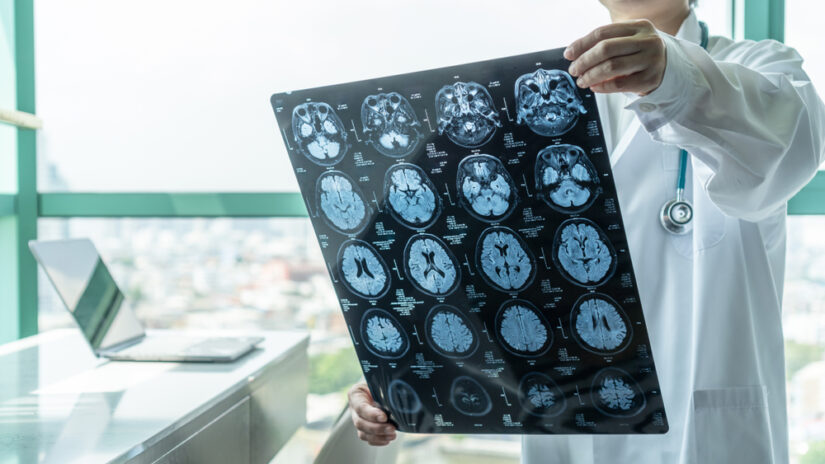While most concussions involve some form of impact to the head, there’s the question of those that don’t. Easy scenarios like car accidents, physical abuse, and some other incidents can be easily connected to an ensuing head injury. Other scenarios leave room for questioning whether a concussion occurred or not.
When the more common symptoms associated with an injury shift into something less seen, it can be difficult for people to properly assess and manage the injury. This is the case with concussions where there has been no violent blow to the head. For anyone that wonders if you can get a concussion without having hit your head, we’re here to clear up that question.
If you or a loved one may have suffered a concussion without blunt head trauma, contact Maho Prentice LLC Attorneys at Law to schedule a free consultation. We’ll review your case and let you know what you may be entitled to. When seeking compensation for injured clients, our attorneys seek the maximum payouts to support victims’ quest to fully recover from injuries.

What Is a Concussion?
Concussions are traumatic brain injuries (TBIs) that occur when the brain impacts the interior of the skull. It’s an internal head injury that occurs from volatile physical incidents. This serious injury to the head often causes symptoms that disturb health and wellness. Concussion injuries can be unseen when internal, but the signs and symptoms are proven, as is their impact.
Yes, a concussion is a head injury. No, you don’t have to hit your head to have a concussion. Like other head injuries, the problems concussions cause often require specific, specialized medical care. Signs and symptoms can be elusive and latent. As with any traumatic brain injury, the counsel of a doctor and lawyer should be sought immediately after incidents of causation.
Most Common Causes of Concussion Without Hitting Your Head
The human body can be traumatically impacted in so many different ways and circumstances; each of which can cause a concussion.
Among the most common causes of a concussion are:
- Whiplash
- Car crash related traumas
- Falls onto hard surfaces and from heights
- Contact/ high-impact sports-related incidents
- Explosion and concussion blast-related incidents (demolition, jet engine malfunctions, dynamite)
- Physical throttling like shaking, pulling, pushing, and striking
What Can Happen After You Get a Concussion?
Depending upon the nature of the concussion, symptoms can disappear within weeks. Unfortunately, there are cases where setbacks occur, and eventually post concussion syndrome (PCS) sets in.
The characteristics of PCS parallel that of a concussion, but the duration can be months or years after concussion victims are usually fully recovered. Additionally, depending on details like location and severity there can be a great variance of symptoms from one person to the next. PCS is known to be a great challenge to the day to day quality of life of those suffering from its impact.
Some commonly seen physical and cognitive symptoms of PCS are:
- Persistent fatigue in the presence of sufficient rest
- Deterioration of memory recall, concentration, and focus
- Persistent mood changes, including depression and anxiety
- Persistent physical discomforts such as migraines and other headaches
- Partial or total loss of sensory perception
- Brain swelling
- Deterioration of physical coordination
Treatments for PCS generally focus on relieving the symptoms. Physicians are known to prescribe concussion victims scripts for drugs that focus on pain relief or to refer sufferers to practitioners specializing in psychological fields.
There has been a persistent debate within the medical community as to what exactly causes PCS, but many specialists agree that age and previous history of head trauma are risk factors.
Because the symptoms of PCS are so dynamic, it’s important for victims to strive for medical resources that place them in the consistent care of qualified specialists.
Symptoms of a Concussion Without Hitting Your Head
Severe concussions are known to present some lasting effects. This is where the phrase “persistent post-concussive syndrome” gets its name. Persistent post-concussive symptoms materialize then the symptoms of concussions persist beyond the period of time average recovery time after the initial injury-causing trauma. It usually takes seven to 10 days to surface.
Such concussion-related signs and symptoms include:
- Dizziness
- Headaches
- Nausea
- Extreme fatigue
- Vision problems
- Tinnitus, or ringing within the ears
- Irritability
- Increased anxiety
- Insomnia and other forms of altered sleep patterns
- Loss of concentration
- Increased sound sensitivity
- Partial or total loss of memory
- Increased sensitivity to noise and/or light
- Body aches, including migraine and radiant pain in the cervical spine

Concussions by Grade
Doctors rank concussions based on severity, which is measured by certain characteristics. Things like loss of consciousness, loss of equilibrium, and amnesia all play a part in the diagnosis. Don’t buy into concussion myths that say that head impact is needed to be concussed. Below are the three grades of concussion:
Grade 1- Mild Concussion
Symptoms don’t persist for more than 15 minutes and victims don’t lose consciousness. The range of signs and symptoms stays broad, but it can be the case that fewer symptoms exist simultaneously. There is generally less concern that this grade of brain injury will be life-altering.
Grade 2- Moderate Concussion
Symptoms that last for over 15 minutes and involve no loss of consciousness. Here the range of signs and symptoms stay broad, and more may exist simultaneously at varying levels of intensity. There is a moderate amount of concern that this grade of brain injury would have a life-altering impact.
Grade 3- Severe Concussion
The person loses consciousness. Symptoms are broad with many existing simultaneously at higher intensity levels. Severe concussions should be considered emergencies, sufferers need to rest, and without a proper medical assessment, the lives of the diagnosed ought to be considered at significant risk until a doctor reassesses them and states a change.
Higher grades of concussions are associated with an increased risk of dangerous brain injury. Also, research shows that older adults who suffer concussions are more likely to never fully recover. It should also be noted that some people’s concussion symptoms can take years to surface.
Concussions by Frequency and Profession
With every concussion comes some brain damage. With every additional concussion the risk of greater and more permanent damage increases. Lack of treatment is directly related to permanent brain damage and a lack of full recovery. Persistent post-concussive symptoms are a serious occurrence and require the medical expertise of a doctor for a recovery plan.
The data collected from car crashes, and contact sports has been instrumental in learning how concussions affect the brain. This data helps to dispel common myths and questions that have long surrounded concussions. Post-traumatic headaches and other symptoms once unquestionably associated with concussions are now unequivocally understood as linked.
Professional American football and ice hockey players are great examples. When they get their first concussion, they’re given time to recover. After their second concussion, they’re placed into an observational protocol and monitored for second-impact syndrome. If any more concussions occur, they’re basically retired by their league as a life-saving preventative measure.
What Is the Treatment Plan for a Concussion?
Treatment plans depend on your emotional, physical, and cognitive symptoms. Remembering that emotional issues like depression and anxiety are common is an important detail to note.
Medical providers develop customized plans to service recovery needs on a client-by-client basis.
.
It’s also very important to be well-rested physically and mentally when recovering from traumatic brain injuries. This provides crucial aid to the healing process. Rebuilding stamina, coordination, and a sense of overall balance takes time. Patience is a virtue when recovering from a concussion, as rebuilding correctly helps to prevent future reinjury and supports proper healing.
Only once your healthcare providers have given you the green light should you return back to your pre-concussion activities and lifestyle. Even then you’ll be encouraged to proceed at a gingerly pace, to give adequate space for observing the integrity of your progress. As time passes, you’ll eventually be cleared for all post-concussion activities.

When Should You Seek Medical Attention
With any traumatic brain injury, it’s important to seek medical attention soon as possible. If you get a concussion or suspect that you have one, you should immediately go to the emergency room. Keep a close watch for any sudden change in the condition of the victim, as symptoms like blurry vision and nausea can signal brain trauma that could require immediate surgery.
Many concussion victims don’t know that they’ve suffered a traumatic brain injury. This is because brain function is altered as a result of the loss or impairment of healthy brain cells.
People who’ve only had one concussion that went untreated can be in increased danger if their second concussion ever comes along. Repeated concussions are to be avoided at all costs.
A CT scan is a tool that doctors can use to find out if a concussion is causing symptoms victims may experience. CT scans are a type of imaging test that provides a view of your body from the inside and allows doctors to clearly assess the damage to your brain. The doctor can see your brain in great detail, which can lead to understanding how to manage your healing journey.
Why Do You Need a Lawyer?
Whether whiplash occurs, or some other events cause you to suffer a concussion without hitting your head, you’ll do much better with a personal injury lawyer who’s trusted and tried. After a concussion, your brain will have been compromised. Therefore, it’s only right that you focus on recovering from your concussion.
A person with impaired brain function is in no position to navigate medical bills, insurance negotiations, interviewing witnesses, and more. Those jobs and others like them are what personal injury lawyers specialize in. You need a lawyer to make sure that all of these things are done correctly. Without proper legal help, the chances of failure rise exponentially.
Our attorneys know all the tricks of the trade inside and out. We save our clients money and time, preserve the peace of mind of their clients, and educate them on what to do if they’re ever in a similar situation in the future. Our attorneys aren’t only legal experts, they’re sounding boards that offer emotional support and successfully act as guardians of health and wellness.
